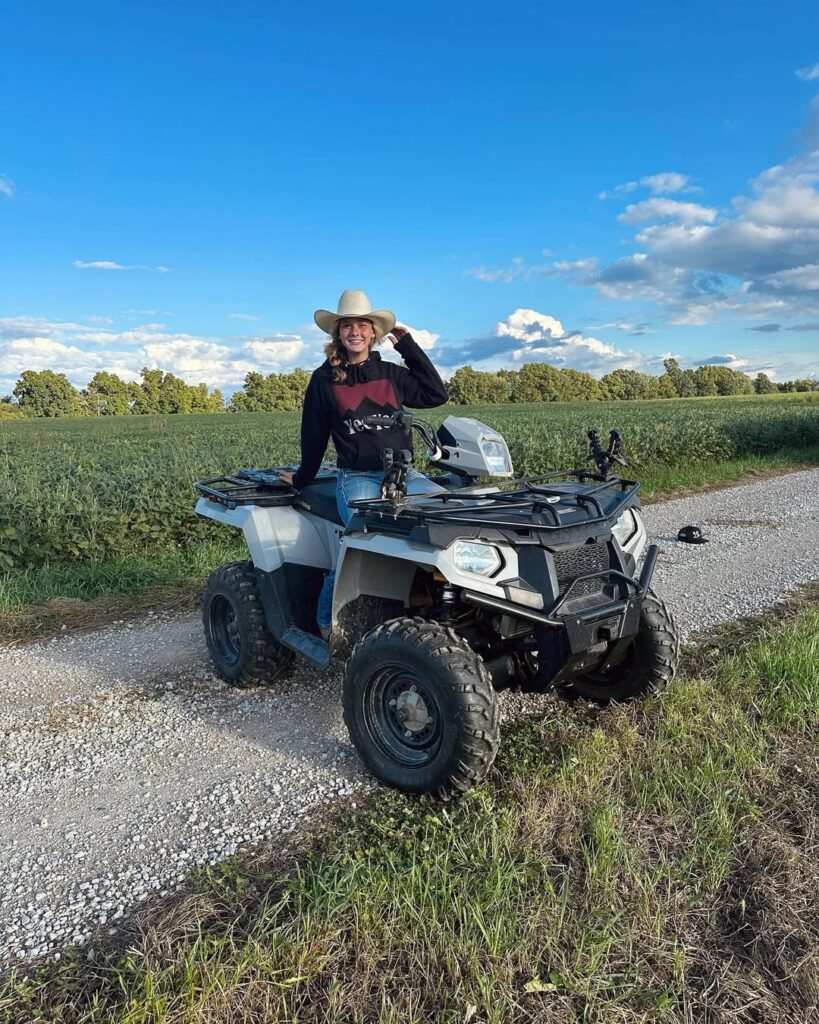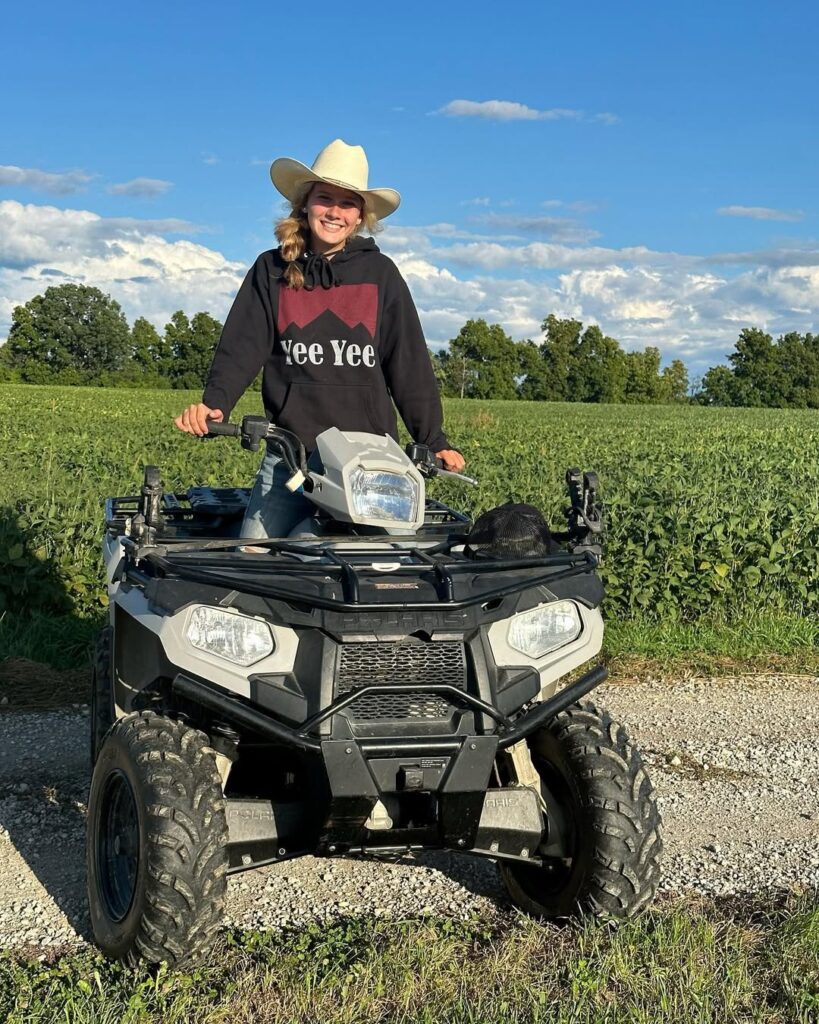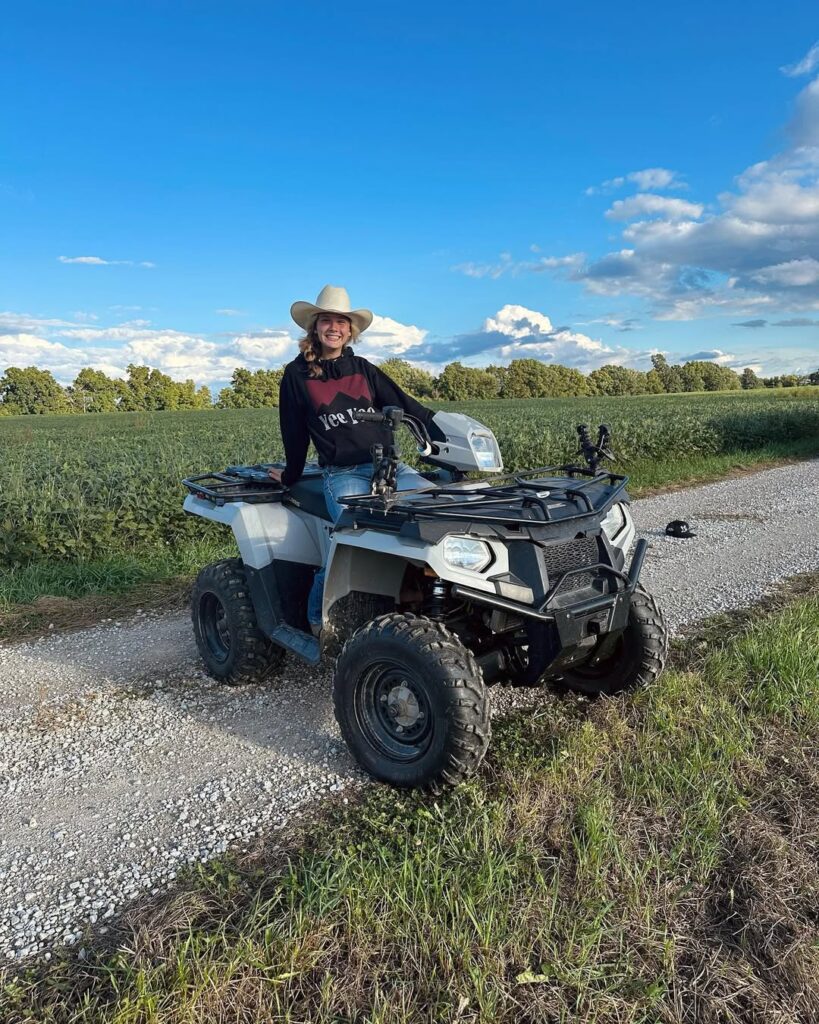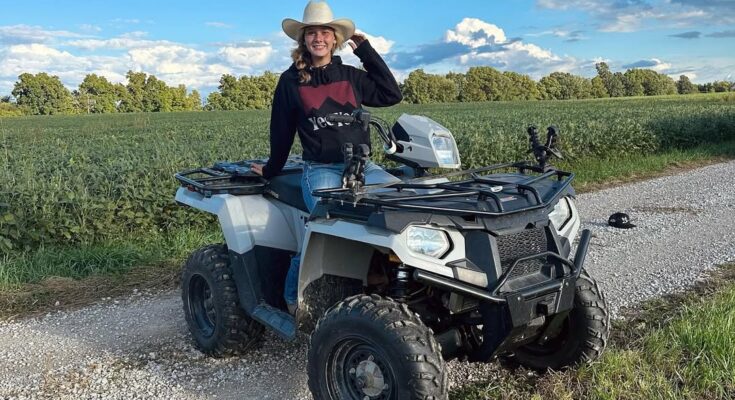In the world of agriculture, especially in regions where rice is a staple crop, innovation plays a critical role in increasing productivity and easing the burden on farmers. One such innovation that has gained popularity in recent years is the four-wheeled motorbike, also known as an all-terrain vehicle (ATV) or quad bike. These machines are not only used for recreation and adventure sports but are also becoming extremely useful in farming—especially in the challenging terrain of rice fields. Four-wheeled motorbikes are easy to ride in the rice fields, and they bring many benefits that make agricultural work more efficient, faster, and less physically demanding.

Rice fields are often muddy, uneven, and waterlogged, especially during the planting and harvesting seasons. Traditional vehicles such as tractors or two-wheeled motorbikes may not perform well in such conditions. Two-wheeled bikes can easily lose balance and get stuck in the mud, while larger machines may be too heavy and expensive for small-scale farmers. That’s where four-wheeled motorbikes shine. Their design makes them stable, lightweight, and able to handle the rough, slippery conditions typical of rice paddies.
One of the key advantages of four-wheeled motorbikes is their stability. With four wheels instead of two, the vehicle provides a strong balance that prevents tipping, even when navigating through muddy or uneven ground. This is especially important in rice fields, where wet soil can cause wheels to sink or slip. The wide tires on an ATV spread out the weight of the bike and rider, making it less likely to get stuck. Riders can move through the field without worrying about falling or losing control.
Another reason four-wheeled motorbikes are easy to ride in rice fields is their maneuverability. These vehicles are built for quick and easy turns, which is very helpful when driving between rows of crops or around irrigation channels. Unlike larger farm equipment, quad bikes can fit into narrow spaces and handle tight corners. This makes them ideal for transporting supplies like seedlings, fertilizer, and harvested rice without damaging the fields.

Ease of use is another big reason farmers like these motorbikes. Most four-wheeled motorbikes have automatic or semi-automatic transmissions, so there’s no need to constantly shift gears. This makes them accessible even to those who have never driven a regular motorcycle or tractor before. Many ATVs also have handlebars like a bicycle rather than a steering wheel, which can be more familiar and easier to control for new users.
The cost-effectiveness of four-wheeled motorbikes also makes them a smart investment for farmers. Compared to tractors or other heavy equipment, ATVs are more affordable and require less maintenance. Their smaller engines consume less fuel, and parts are generally easier to find and replace. For small farms or families who cannot afford large machinery, four-wheeled motorbikes offer a practical alternative that still provides powerful support in daily farming tasks.
Transport and load carrying are also made simple with four-wheeled motorbikes. Many models come with rear cargo racks or trailers that can be attached to haul farming tools, sacks of rice, buckets of water, or even harvested crops. This makes it much faster to move supplies around the field compared to doing it by hand or using a cart pulled by animals. Farmers can make fewer trips and carry more each time, saving both time and energy.
In areas with limited road access, such as rural villages and mountainous rice terraces, four-wheeled motorbikes provide a reliable means of transport. They can travel on dirt paths, through shallow water, and over hills where cars and trucks cannot go. This allows farmers to reach their fields easily, even during the rainy season when roads are muddy and difficult to navigate. In some communities, these motorbikes are even used to take children to school or carry goods to local markets.
Apart from being functional, these motorbikes are also fun to ride. Many farmers enjoy using them because they feel fast and responsive. Riding through the open fields with fresh air and green scenery can make daily farm work more enjoyable. Young people, in particular, may be more interested in helping out on the farm if they get to ride the ATV, adding to the workforce and passing down farming traditions.

Of course, it’s important to mention safety. Although four-wheeled motorbikes are more stable than two-wheeled ones, they still require caution. Riders should always wear helmets and protective gear to avoid injury. Children should not ride them unsupervised, and farmers should receive basic training in operating the vehicle safely. When used responsibly, ATVs are both safe and effective.
There is also growing environmental awareness regarding farm machinery. Some newer ATV models are electric, producing less noise and no emissions. This is great for the environment and for farmers who want to protect their land and water sources. Using electric four-wheeled motorbikes in rice fields could become a new trend that supports both agriculture and sustainability.
In addition to rice farming, four-wheeled motorbikes can also be used for multiple purposes around the farm. They can be used to check on livestock, spray pesticides, transport firewood, and monitor irrigation systems. This versatility makes them a valuable tool all year round, not just during the rice-growing season.
In conclusion, four-wheeled motorbikes are transforming the way rice farming is done. They are easy to ride, stable on wet ground, cost-effective, and highly practical for everyday farm use. With their ability to move through muddy fields, carry heavy loads, and handle rough terrain, they have become a favorite choice among farmers, especially in Southeast Asia and other rice-growing regions. As technology continues to evolve, we may see even more improvements in the design and use of ATVs in agriculture. What’s clear is that these machines have already proven themselves as essential partners in the rice fields, helping farmers work smarter, not harder.



